7 Critical Steps: Find the Purpose of Life and Feel More Fulfilled
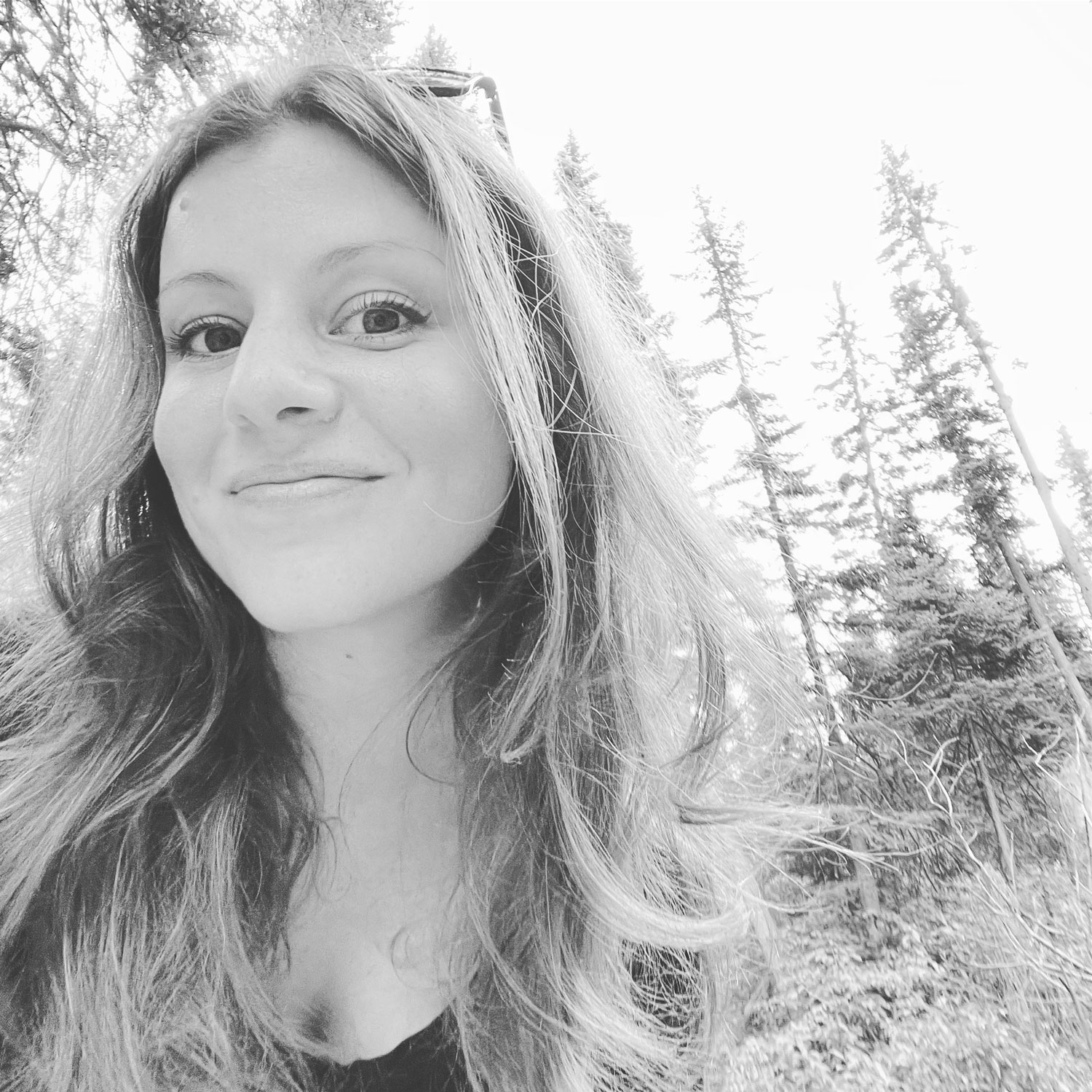
What’s the Purpose of Life?
This is a question humans have asked for our entire existence. We’re meaning-making machines, and the one thing we’ve struggled to answer is:
What is the meaning of life?
For many, the idea of purpose is frustrating because it feels ever-elusive and impossible to pin down. We believe that purpose means something grand in scale, becoming globally celebrated and recognized like Mother Theresa or Martin Luther King Jr., or changing the course of history and solving world problems.
But the purpose of life is actually straightforward:
Show up, be you, and do what you feel called to do. Purpose is about contributing to the world in the way that only you can, at whatever scale feels suitable.
Existentialism and the Human Struggle to Find Meaning
What is Existentialism?
Existentialism is a form of philosophical inquiry that explores the problem of human existence and centers on the experience of thinking, feeling, and acting. In the view of the existentialist, the individual's starting point has been called "the existential angst," a sense of dread, disorientation, confusion, or anxiety in the face of an apparently meaningless or absurd world. Existentialist thinkers frequently explore issues related to the meaning, purpose, and value of human existence. Wikipedia
If you’re wondering what the purpose of life is, then you’re existential!
Personally, I think this is an incredibly important question to ask.
Otherwise, we never step out of autopilot and start creating a meaningful life on our terms, let alone give our gifts to the world.
Why are we here? Does life have a purpose?
What we get most wrapped up around when it comes to purpose is the question of why are we here? Why do we exist on this rock in the middle of space, circling a ball of fire? What’s the point of all this chaos and craziness?!
There are many theories (my favorite of which is that this is a playground for spiritual evolution), but the truth is, we don’t know.
And we’re not going to find out or understand while we’re here. What matters is finding purpose in our everyday lives during the time that we have.
Do we have more than one life? There’s no way to know for sure.
Do we go to heaven or experience some afterlife? There’s no way to know for sure.
Do we come to the end of the line, and that’s that? There’s no way to know for sure.
The only thing we do know for sure is that we’re here—right now. We have this one precious life that's a short blip in time, even if it’s long and healthy.
So what can we do with our life that is important and purposeful?
As humans, we need a sense of purpose in our life to feel fulfilled and happy. We’re wired for evolution and contribution, and when we don’t feel like we’re having an impact in the world to some degree, life begins to feel meaningless. When life begins to feel pointless, that’s when we start to experience depression, anxiety, and hopelessness—a recipe for stagnation, even death.
While some callings are ultimately about contribution to the greater world, many callings are about contribution at home, in our communities, and with the people closest to us. They can be about parenting a host of small children, being the best teacher in your local school system, creating art that makes spaces feel more beautiful, or volunteering at a local food bank.
No contribution is too big or small, or more or less meaningful than another.
What we feel called to do matters, regardless of the scale, and we must take the time to lean into what tugs at our hearts.
I’ve spent my life learning about purpose because I’m one of those people (there’s a lot of us!) who feels like I was born at the wrong time on the wrong planet. I don’t feel like I belong here or that I fit in.
Way more people than I realized feel this way, so if you do too, you’re not alone!
While I’ve done the work to feel more at home here and build a meaningful life that brings me joy, I still don’t know the true meaning of life or what comes after it, but I do know that having a sense of purpose while we’re here is vital and important.
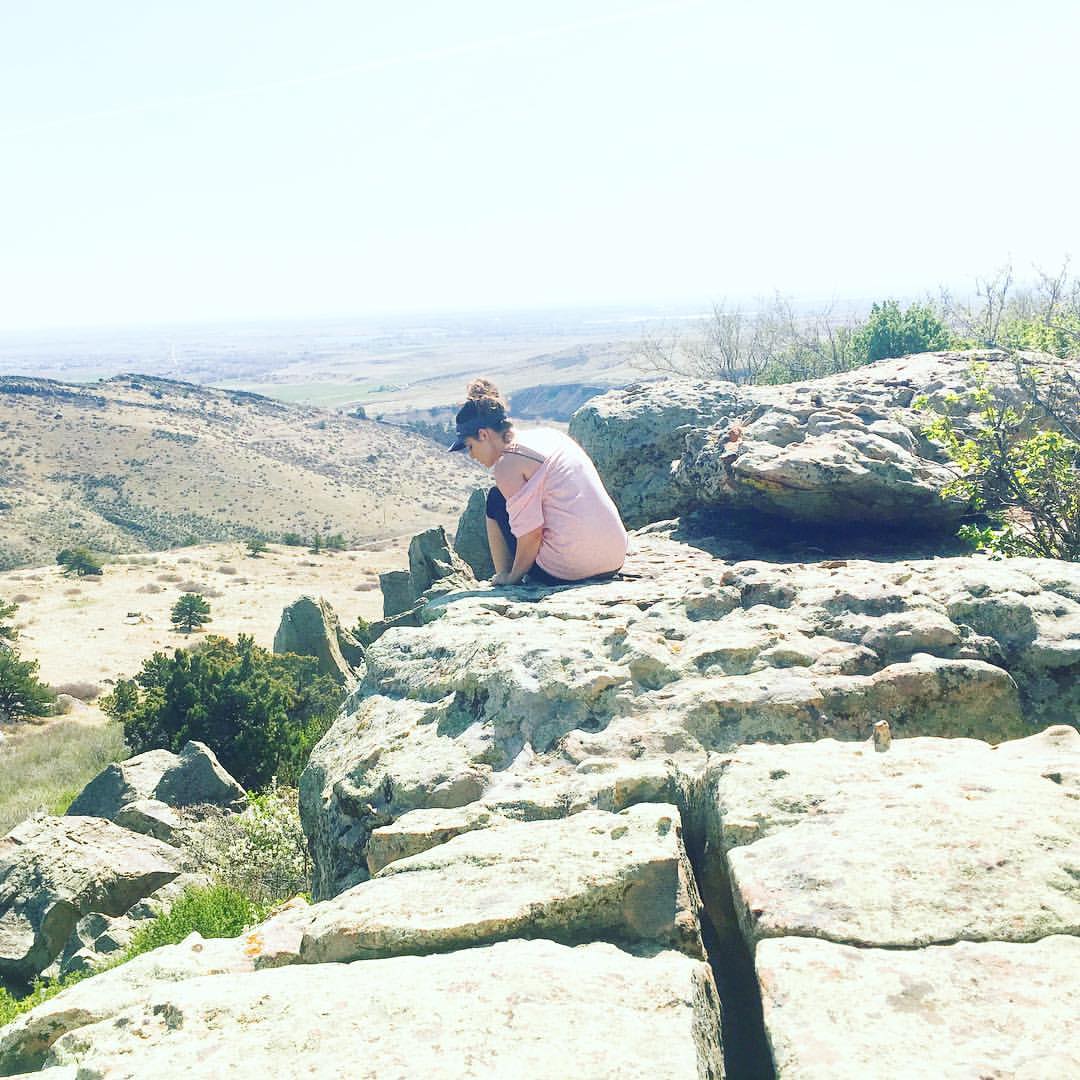
The Problem With Looking for a Purpose in Life
The first problem with looking for our purpose in life is what I’ve already addressed above; we think it needs to look a certain way and be at a certain scale.
But the other problem with looking for our purpose in life is that we don’t really understand the difference between our purpose and its expression.
Our purpose has been hard-coded into us since before we were born; who we’re here to be and our unique way of contributing.
But how our purpose expresses itself changes based on two things:
- How life has shaped us.
- The times we live in.
First, life is always shaping us.
The experiences we have (trauma, loss, school, jobs, relationships, cultural, etc.) and the systems we live in (familial, relational, educational, societal, racial, political, etc.) constantly shape us as we move through life.
I use myself as an example of this often. When I was 30 years old, I was so clear on my work in the world. I was teaching people how to find their passions and build a life and business around them. I loved my work and my clients and had created a tremendous amount of meaning and joy in my life.
And then, I experienced a sudden and traumatic loss that left me with PTSD, led me into an abusive relationship, caused my business to die slowly, led to bankruptcy, and left me with a slew of health issues to contend with. I learned more than I ever wanted to know about finding healing and wholeness in the aftermath of challenging chapters and big life transitions. I learned what it takes to “make a comeback” and rebuild my life from the ashes of what it once was.
This shaped my work and my purpose in the world. I built CallOfTheVoid.tv, created Journey Mapping and wrote Unravel, launched a podcast called Tales from the Journey showcasing other people’s triumphant comebacks, and generally deepened the conversation of my purpose work to include more of a healing focus.
Life shaped me, and the way my purpose expressed itself shifted.
This happens in significant ways like mine, as well as in small ways. We can be in relationships that cause us to heal, grow, or change our mind on things. We can travel the world and have our eyes opened. We can read a book, attend an event, or converse with a stranger and it will shape us and how our purpose expresses itself.
In our first episode of Tales from the Journey, I dive into my Journey Mapping process and how it can help you uncover the purpose of your path in the aftermath of challenging chapters and bit life transitions.
Be sure to give it a listen if life is presently shaping you!
Second, the times we live in are constantly (and rapidly) changing.
We’re all experiencing this collectively in big ways right now, but it’s always been true.
What’s going on in the world around us directly influences who we become and the work we feel called to do. Take Greta Thunberg as an example. She’s clearly wired to be passionate and vocal about things that matter to her. If we weren’t in a climate crisis, she might have begun taking a stand for animal rights, shifting our education systems, or critical social justice causes.
But she was born the person she is during a time when the climate crisis is here and present, so it’s shaped how her purpose expresses itself.
It’s true in my work as well. Yes, my purpose work has been heavily influenced by the life experiences that have shaped me. And how I do my work, offer my services and content, and some of the topics I absolutely must cover in my conversations stem from social injustices we’re seeing, the damage of our outdated education system, and other systemic issues that are having a direct effect on whether or not people can live fully expressed, and do so safely.
When the pandemic hit, we immediately organized ourselves to offer our business building program as a “pay what you can” offering and taught crucial lessons from Journey Mapping for free in a public Facebook group.
We did this because the times required an added level of support for people in a sudden state of chaos, grief, and uncertainty, and many people were in a panic about losing their jobs. The times influenced how my purpose expressed itself, just like it has for millions of people worldwide.
Don’t get hung up believing your purpose in life will always look the same.
It won’t. Life will continually shape you, and the times will constantly be shifting and evolving.
The expression is meant to shift and grow, so give yourself the space and permission to allow it to evolve and unfold how it’s supposed to over your lifetime.
For some people (like me, so far!), that unfolding has been organic and relatively linear. I don’t imagine that I will stray far from the types of expressions that I’m presently drawn to, including content creation, living my lessons out loud, creativity, documenting, writing, etc.
For other people, it can look like bouncing from running your own business to working for nonprofit organizations to making art and writing. The expression can vary wildly, but that doesn't make it any less aligned and important.
For those that tend to bounce around a bit more (whether that’s doing tons of things at once like me or bouncing between several different things in different cycles), it’s important to note: there’s nothing wrong with you. I’m a big fan of Barbara Sher’s book, Refuse to Choose, as well as Emily Wapnick’s work and conversations about multipotentialites.Some people aren't wired for a linear path, and it's hugely important that you give yourself permission to bounce around however feels right to you.
How to Find Your Purpose in Life
What You’ll Need to Find Your Purpose
Anyone can find their purpose in life, but there are particular qualities and resource states that make it a lot easier. So let’s look at what those are first:
All of this requires knowing yourself at a level that most people don’t.
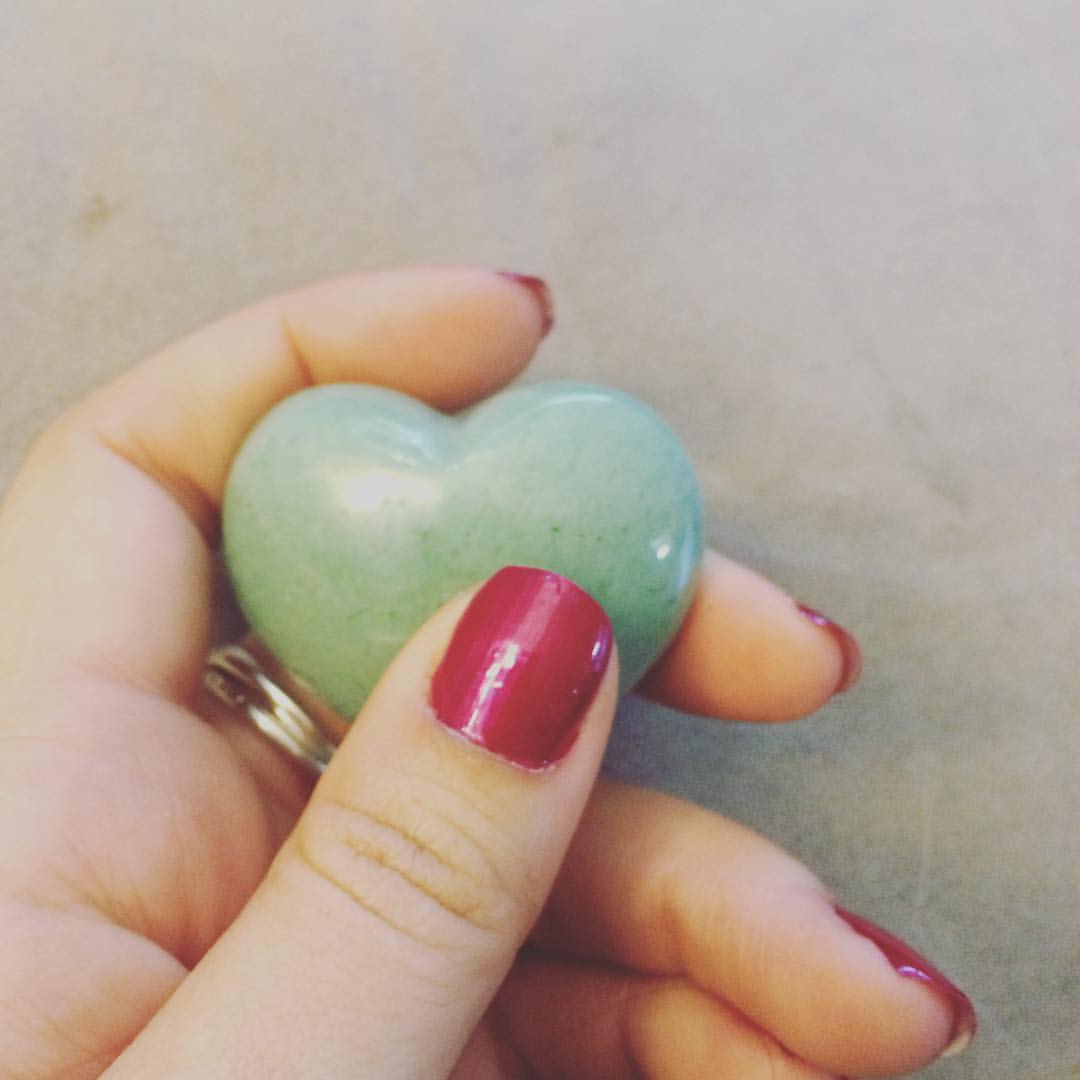
So, How Can You Know Who You Really Are?
You first have to unlearn everything the world told you to be.
This is where systems work comes into play. You were born into this world as a beautiful and brilliantly unique soul with a particular purpose hard-coded into you.
But you were also born into a particular family system, whether that was your parents and siblings, grandparents and cousins, or even the foster care system. You had attachment figures that began shaping you based on their own personality, lens, beliefs, and values. You may have been in a family system or culture that prioritized the teachings of a particular religious system and doctoring that also began influencing you.
Most of us then end up in an education system of some kind. For many, that’s the school system, from kindergarten to college and beyond. Sometimes that’s training or mentorship. At some point, you begin to learn how to be and behave to get the grades, be successful, or earn some title or certificate that says you’re “good enough” to go out into the world and make money.
Then we go out into the world and bump up against even more systems! Societal, medical, corporate, bureaucratic, political, cultural, dating, marriage, etc. The systems are never-ending. And while this isn’t a conversation about eradicating, replacing, or reconfiguring the systems, it is a conversation about how systems cause us to stray far, far away from who we really are.
So you have to ask yourself things like:
This requires that deeper piece of self-awareness and total transparency with ourselves.
Notice where you adjust your answer based on what you believe is possible or realistic. Notice where you get down on yourself or beat yourself up for what you want. Notice how quick you are to make yourself wrong about things because you know others would judge or reject you.
That’s the effect of systems at play. You have to move beyond that and get really honest with yourself if you want to live your purpose in life.

7 Critical Steps That Help You Find Your Life Purpose
1. Live life fully aligned and fully expressed.
Living life fully aligned means being honest about your values and what matters most to you and continually aligning yourself with those people and experiences. It means being able to discern what feels right and true for you and not contorting or self-compromising so that you can "fit in" in the ways others want or expect.
Living life fully expressed means showing up as all of who you are in each and every moment—unapologetically and wholeheartedly. It's about bringing everything that makes you unique, special, and different to the forefront.
If we're not living life fully aligned and fully expressed, we can't live our purpose in life because we're not being who we're here to be.
So, here are some questions to ask yourself:
2. Follow your whims, no matter how wild-haired or crazy they seem.
Whims are stepping stones to our purpose in life if we're willing to follow them.
The thing about whims is that they can be random and out of left field, utterly unrelated to our actual purpose in life. But that's the point!
They lead us down a path to meet new people, have new experiences, and be continually shaped by life into the person we need to be to live our purpose.
So if you're getting an urge to start painting or take a workshop or begin a weird and unexpected hobby—do it. It will lead you to places you don't expect! And eventually, your whims will lead you right into your calling.
3. Determine what’s actually calling you.
It’s essential to understand the difference between a calling and a whim.
Like I said, your whims will lead you to your callings and your purpose in life, but it's not always a linear path. Sometimes you have to wind or bounce around and go through a handful of different experiences before your callings start to surface.
Let’s take a closer look at the difference between the two:
A calling is magnetic and all-consuming.
Callings draw you toward them. They start as a tiny nagging thought or feeling, then begin to consume your mind and drive your everyday life. You can’t ignore them. You’ll feel a sense of urgency and a strong inclination to follow a calling, whereas a whim is often fleeting. Whims are impulsive and may feel as though they’ve come out of nowhere. Callings start deep inside of us, stirring and growing over time until they simply can’t be ignored any longer. Ignoring a strong calling will leave you feeling frustrated, unfulfilled, antsy, and very discontent with your life and career if these things are out of alignment.
The core focus of a calling is always present.
If you feel called to inspire healthy lifestyle changes in others or end global warming, that will always drive you, regardless of how you choose to act on it. Suppose you’re called to care for animals. In that case, you may be a veterinarian, create a nonprofit against factory farming, become a vegan health coach, or foster shelter animals until they find forever homes. You may even do one or more of these in your lifetime, but the core of what calls you will always be present.
Whims, on the other hand, vary greatly. There may be times you feel a desire to be active, social, rebellious, or experimental, while other times you feel an urge to get still, go inside yourself, or cut ties. They are necessary, but also temporary.
Callings are about contribution.
Whether you feel called to make art or change the course of global warming, all callings are about contributing to the world. Through your words, actions, presence, and creations. This is why they matter. Your views, experiences, voice, and ideas are meant to be shared, and your calling will align itself with some way to express these things, though the medium varies from person to person.
Whims are more selfish and focused on you—what you feel the desire or need to do for yourself at this moment—achieving some desired feeling, experience, knowledge, or connection. Whims feed and fuel us, allow us to rejuvenate our spirits, and refill the well of ideas and inspiration, but they’re narrow by nature.
4. Understand the difference between your skills and talents vs. your passions and purpose.
Here’s the truth about “what you do best”: You have these strengths and skillsets as tools, not necessarily to build your life around.
I’m a prime example of this! My skills, experience, and “expertise” are in graphic design and branding. I went to school for it, worked at many firms and agencies, even built multiple businesses of my own around it! But design and branding alone are not my purpose. Purpose is my purpose, and I'm driven by the desire to create an entirely new conversation around how we live our purpose in life.
I tried to find a logical way to incorporate the two, like only working with non-profits or companies that try to make a difference. But the fact is, I’m just not passionate about design on its own. It’s a talent, one that I wasn’t entirely sure why I had until I realized it was a tool to do far more significant work in the world.
Yes, I can create a beautiful and strong brand for everything I do, but my experience with branding also allows me to help people define their why, values, and vision for life, then help them ensure all life areas are consistent with this vision. I can see where people are out of alignment with what they claim to believe and desire in their lives. I help individuals, like you, rediscover themselves, find their passion and build lives and businesses around them.
Let’s take a look at how you can combine your skills and passion:
Step 1: Make a Transferable Skills List
The first step towards building a life around your passion while incorporating your skills and strengths is to look at how they integrate. At first, it can be challenging to make a connection. Take my story as an example. How on earth do graphic design and personal development work together? But they fit together perfectly! Upon closer inspection, you’ll be able to see how specific experiences, skills, tools, and knowledge will make building a life around your passion so much easier.
Step 2: Reframe Your Situation
You may often experience feelings of guilt or shame around the fact that you went to school, trained, or spent years of your life following your skills, not your passions and purpose in life. Before moving forward with what you love, you have to release those feelings and reframe the situation.
First of all, you wouldn’t have ended up doing whatever you’ve been doing without those natural skills and talents; there’s a reason you spent time in the field you did and not another. Even if you were shoved into a profession that felt out of your skillset, you likely landed in a position that was fitting on some level.
Instead of viewing this as wasted time, work to see it as time spent honing your skills and talents from a different angle. Having a unique perspective on doing things will prove invaluable as you pursue your purpose in life. No matter what you’ve been doing, it will serve you in the years to come.
Step 3: Dabble in Your Delights
Just because you spent years as a lawyer doesn’t mean you’re “wasting time” painting or that you have no business building a life around working with kids when all you’ve done for the past decade of your life is crunch numbers. You’re drawn to what you’re drawn to for a reason—don’t overthink it! Do what you love. Do what you deeply desire to do. Do what lights you up, fascinates you, and feels right.
If you want to paint and be an artist, then paint and be an artist. Don’t worry about the thoughts that tell you it’s silly, childish, random, or a waste of time. Don’t think you should focus on that big promotion when you don’t love what you do. Put energy into what you love to do, not what you do because you can do it well.
5. Understand the Universal Law of More Life.
This is one of the Universal Laws of Success.
This law says that we are here to grow into more. Life is continually expanding, the universe is constantly expanding, and we are always expanding and growing. We all have our purpose in life—our unique way of contributing to the world.
The only way to be who we're here to be and do our vital work in the world is to be on our growth edge constantly.
Life is constantly presenting us with invitations for growth. We can try to stay no and stay in the known and familiar, but there are consequences. We'll begin to stagnate and stall out, dying a slow death while we're still alive.
Every time life begins to shape us, we have to say yes to that growth invitation.
We have to lean in and surrender to the unfolding, even when it's scary and uncertain. When life shapes us, we're on our growth edge. We have to heal what's old and holding us back. We have to learn new things and be a beginner again. We have to pivot or course-correct and step away from what's comfortable.
If you're working to stay comfortable, you're not able to live your purpose in life.
So, you have to be honest and start asking yourself:
And then you have to lean in and live life on your growth edge.
That means constant expansion, which is wildly uncomfortable and hard.
But that's exactly what we're wired for: more life. More growth and healing. More lessons and changes and becoming who we're here to be.
6. Give yourself permission to pursue your purpose in life.
No one is going to do this for you.
And even if someone does (hi, here's your permission!), you're the only one who can actually begin doing the work to align with your purpose in life.
No one can make this easier or more comfortable.
You just have to do it.
You have to give yourself permission to be a beginner and take new risks. You have to give yourself permission to abandon the known and familiar and the false sense of security that comes with it. You have to give yourself permission to flail around and fail as much as possible to get to where you need to be.
You're the only person who can give yourself permission, so do it now and start!
7. Surrender to the unfolding.
Do you want to live your purpose in life and feel happy, impactful, and fulfilled? Then let go of what you believe those things mean (or should look like) and surrender fully to the process of uncovering and living it in real time. Let go of what you think everything should look like or how you believe everything is “supposed to” turn out when all is said and done. None of that matters.
What matters is that we surrender fully to the process and that we keep facing into and moving through the many layers as they unfold.
When we commit to living our purpose in life, we won’t find what we’re looking for. We’ll find something much more real, true, and aligned. That’s because we can’t possibly know how it will look and turn out when all is said and done.
Often, we find something more amazing than we could have ever imagined.
When we let go of how we “think” it “should” look and turn out, we surrender ourselves, our life, and our work to the natural flow of life. Call it God, call it the universe, divinity, or source. Call it the energy that is. Call it what you want, but know that it’s that never-ending current that moves us through our lives. It speaks to us through intuition and inner knowing. It amplifies synchronicity and screams at us when we’re staying stuck in the wrong situations. It's constantly guiding and supporting us, reflecting back what we're putting out.
When we surrender fully to this energy, we allow ourselves to see new possibilities, a new way of being, and sometimes, a completely new path.
Let go of what you think it means and what you think it should look like. Surrender fully to the process. Stay open. Trust. Have faith. That’s the work.
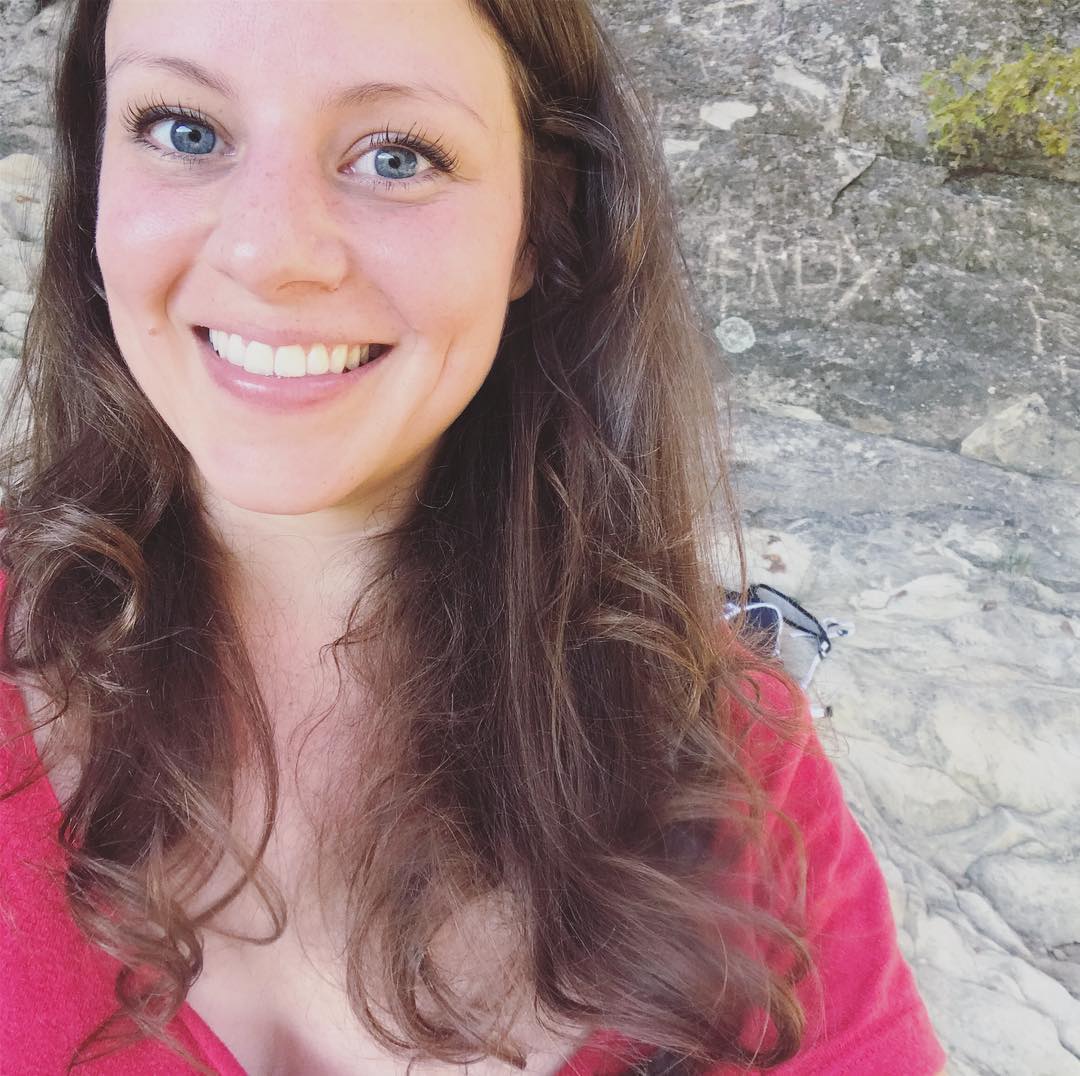
The Importance of Finding Your Purpose in Life
I believe that personal responsibility has the power to change the world. The ultimate form of personal responsibility is full alignment and full expression of self.
You’re here to contribute to the world in the way that only you can.
That’s important and needed, especially at this collective juncture we’re facing.
We need more people showing up fully expressed and fully aligned, giving themselves and all their unique gifts to the world.
We don’t need more people falling in line with the status quo when that’s exactly what led us into so much chaos, trauma, and damage to begin with.
Living your purpose in life is the most important journey you can embark on.
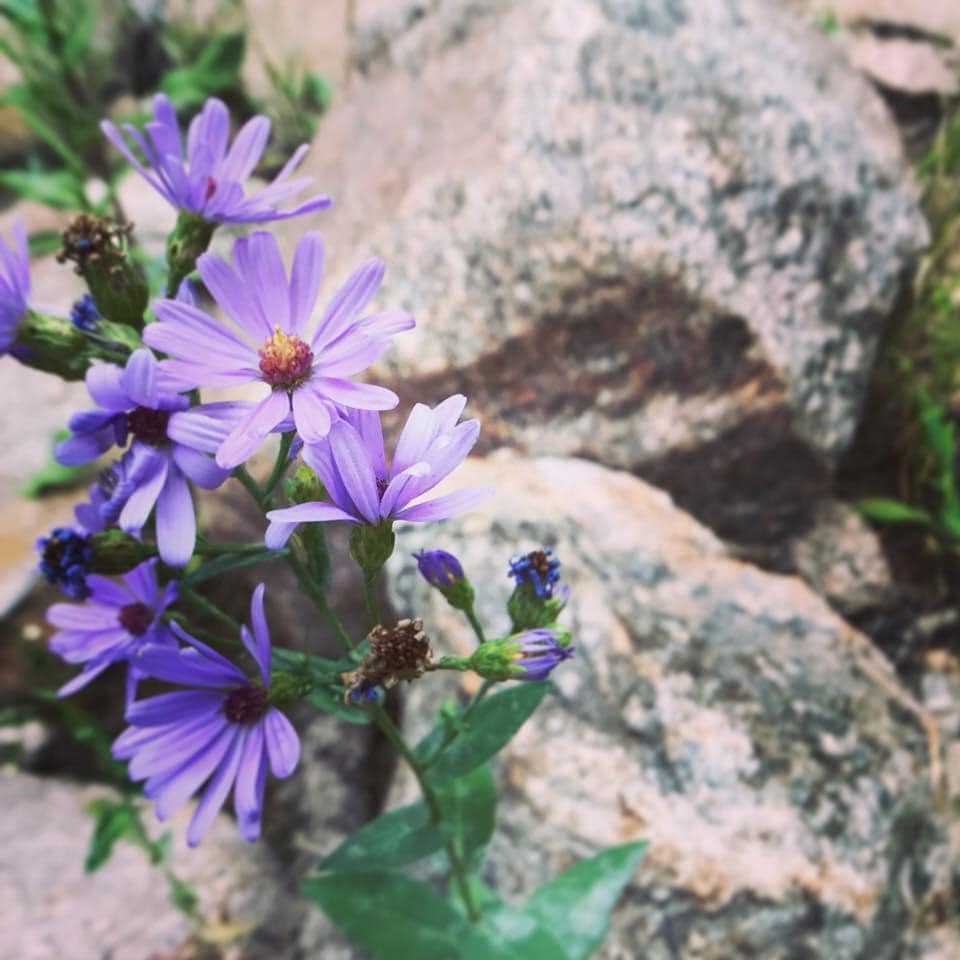
The Truth About What Gives Your Life Meaning
This post started with the question, what’s the meaning of life?
So to close things out, I want to give you some things to ponder about purpose, beyond who we are and the work we do. Focusing on these things, along with leaning in and following your whims, can help you uncover your purpose in life.
The purpose of life is to be happy.
I like to call this “living my joy,” and it’s a prominent practice in my daily life.
Yes, life is filled with growth edges, discomfort, challenging chapters, and struggles, to be sure. But it’s also about finding joy, appreciating the little things, experiencing immense gratitude for our experiences, and feeling deeply fulfilled.
So, what makes you happy? What makes you feel more fulfilled? What brings you tremendous joy, no matter how big or small? How can you prioritize these things more?
The purpose of life is to leave a legacy.
Every day that we’re alive, we’re writing our legacy.
Our legacy is how we’re remembered after we’re gone. That’s when it really comes into play in a meaningful way for other people and the world, but we’re writing that story every moment of every day. How do you want to be remembered?
One of my favorite practices for this is the “death bed” exercise.
Imagine that you’re on your deathbed; what are the things you’re going to look back on and feel pride and joy for having accomplished or done? What do you want the people holding your hand to be able to say they appreciate you for the most? What will their favorite memories and stories be? What will your favorite memories and stories be? What will you be proud to leave behind?
Answering these questions help you better live your legacy right now.
The purpose of life is to love others.
Love is who we are and why we’re here.
While our purpose work is one form of loving on the people and world around us, loving the individuals in our life is part of what gives it meaning.
Who do you love, and how can you ensure you love them to the best of your ability?
This also requires looking at where you have walls up, where you’re scared of love because of past wounding, and what needs to be healed and processed within you.
Loving others wholeheartedly is terrifying because it means certain loss.
One person is going to leave, for one reason or another, before the other person does. Someone is going to have to grieve that loss; that’s just how relationships go. But loving others is one of our most remarkable, healing, and fulfilling powers, and allowing that love to overflow helps guide us to our gifts and purpose.
Who do you love, and how can you ensure you love them to the best of your ability? What do you love, and how can you give yourself and your heart over to it more fully?
The purpose of life is to create your own meaning.
As I mentioned before, we humans are meaning-making machines.
It’s one of our greatest downfalls at times but also one of our greatest gifts. It’s a downfall when you spin into stories and interpretations that aren’t true (which happens because of core wounding and subconscious programming), but it’s a gift when we use it in productive and purposeful ways.
One of the best ways to assign meaning productively is first to accept that there quite possibly is no meaning to life or anything that’s going on.
If life is meaningless, then what’s most important to you? What meaning do you want to create and assign to the things that are happening around you and to the people you love? What meaning will you choose to make that empowers you and catalyzes you into motion around the things you care about?
Being deeply depressed in my 20s, I realized just how meaningless life is and how insignificant I was in the grand scheme of things.
For a while, this didn’t help my depression one big. Until one day, I realized that if life is meaningless, I get to decide what has meaning and what I want to make of my time in this weird little chaotic world! It was a game-changer.
What does this look like for you?
The purpose of life is to make a positive difference.
Purpose is about contribution, and that’s why we’re here in this lifetime.
Knowing that you decide what has meaning, what matters most to you?
Where do you feel called to contribute and make a difference? Who can you have a positive and productive influence on? What can you dismantle and disrupt, or what are you compelled to create and build? What would make the world around you a little bit better and more tolerable while you’re here?
The purpose of life is to have a variety of experiences.
As humans, we’re wired for continuous growth. We live in an ever-expanding Universe, which means we’re supposed to expand endlessly during our lifetime.
But most people stagnate and stay stuck at a certain comfort level.
If this is you, how can you prioritize new experiences and growth? What would push you outside your comfort zone and help you become more of who you’re here to be? What are things that seem interesting to you that you could go and experience? How can you make new experiences a part of your everyday life? It doesn’t have to look like camping and traveling every week like me!
What’s your version?
The purpose of life is to find something worthy of suffering.
Suffering in this life is inevitable; it’s part of the human experience.
But just like we get to choose what meaning we’re going to make of things, what’s worth suffering for to you? What’s worth the pain and discomfort of growth and expansion? What’s worth the struggle of learning new things? What’s worth the risks that come with being vulnerable? What’s worth the inevitable failures on the way to success?
All things worth having require work, as well as some degree of suffering and struggle. What’s worth that to you?
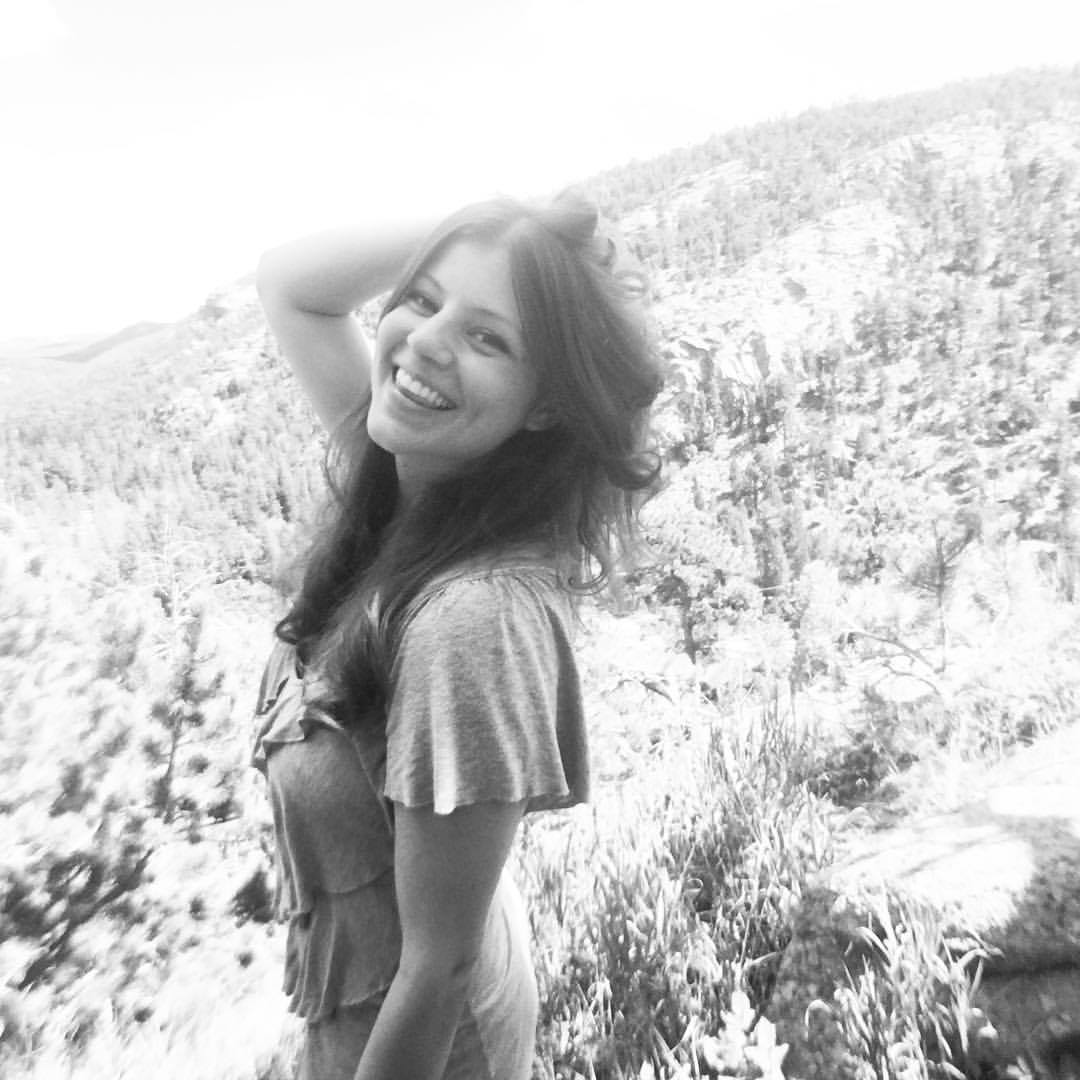
Looking for Examples of Living Your Purpose in Life?
Don’t worry, I’ve got you covered!
Our Tales from the Journey Podcast focuses on stories of people who began living their purpose in life in the aftermath of challenging chapters and big life transitions.
If this doesn’t sound like where you’re at, I promise it is.
You’re asking yourself the hard questions about what it means to live your purpose in life, and that’s often an early sign of big life transitions beginning!
Here are some of my favorite episodes from Tales from the Journey. These have a good variety of stories and purpose expressions for you to pull inspiration from.
Ready to find your purpose in life and start living it?
Then I’m so ready to support you!
Here are some free and paid options for going deeper into this work.
Free trainings:
Paid offerings:

